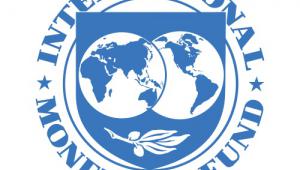The new loan is a victory for president Petro Poroshenko ahead of the election scheduled for March. Without the loan it was unclear how the government would pay debt and finance a budget deficit, as the IMF suspended a support package last year over worries about corruption.
The fund’s decision, which was announced yesterday, includes a first pay-out of $1.4bn this month while two remaining instalments should come in May and November, subject to reviews. The programme will last 14 months.
The money will support the Ukrainian government’s efforts to implement economic policies in the new year to maintain fiscal stability, the IMF said in a statement.
David Lipton, deputy managing director and acting chair of the IMF executive board, said the country had “successfully restored” economic stability and growth, lowering deficits and rebuilding its reserves.
“A new stand-by arrangement will provide an anchor for the authorities’ economic policies during the coming year, preserving recent economic gains and paving the way for higher sustainable growth,” he said.
The IMF has asked Ukraine to create an independent anti-corruption court to crackdown and to raise natural gas prices. The government said the court will be up and running next year.
Lipton said: “Further progress on anti-corruption reforms and privatisation will help attract investment and improve the business climate more broadly.
“Priorities include operationalising the anti-corruption court, privatising large state-owned enterprises, streamlining regulations, and advancing land reform.”
The loan programme will focus on lowering public debt, reducing inflation, strengthening the financial sector and structural reforms, such as improving tax administration and governance.
The World Bank also approved a $750m loan guarantee for Ukraine to support reforms in banking, anti-corruption, agriculture, pensions, utility subsidies and healthcare.
According to the IMF, the economy is projected to grow by 3.5% this year.







